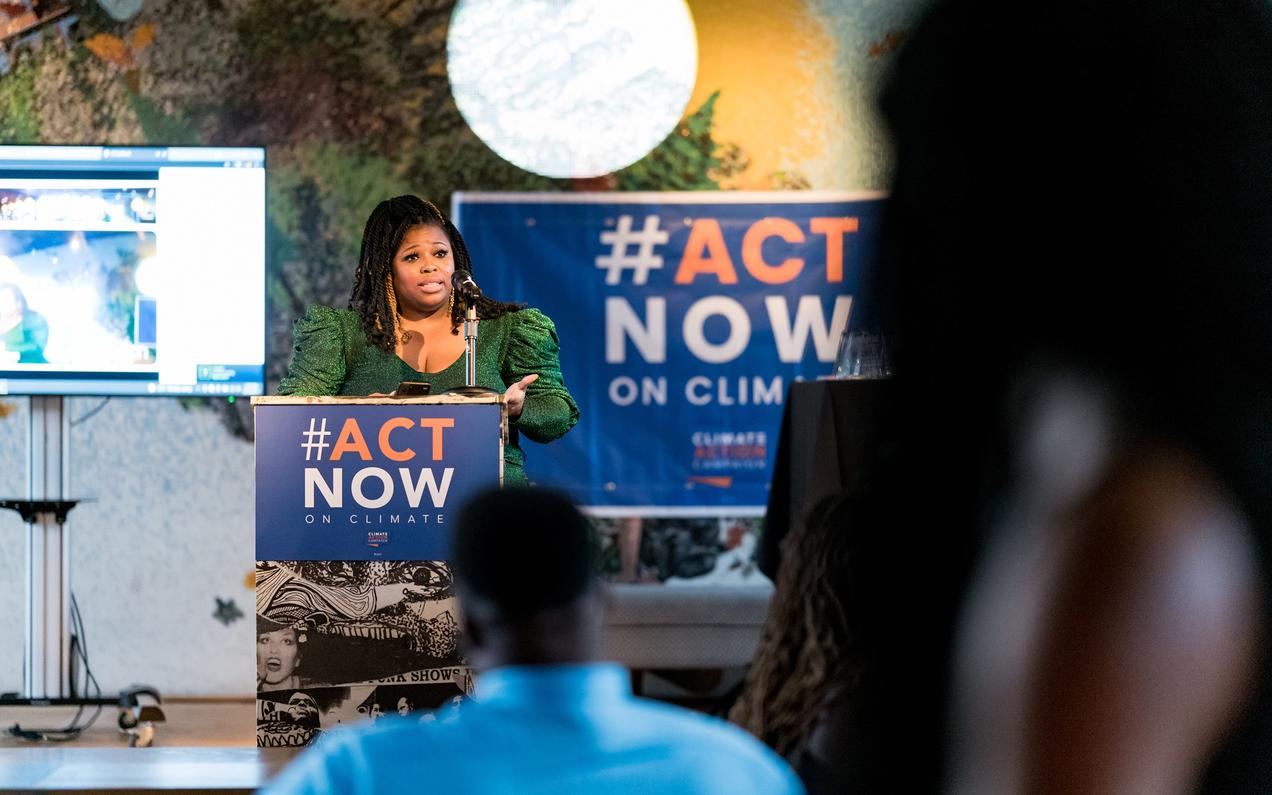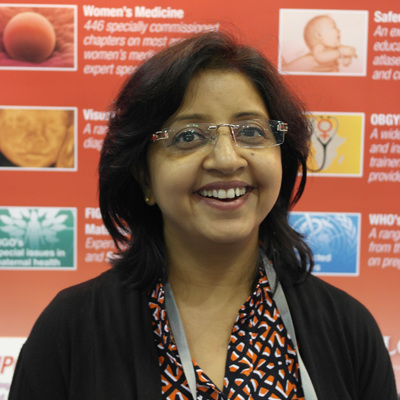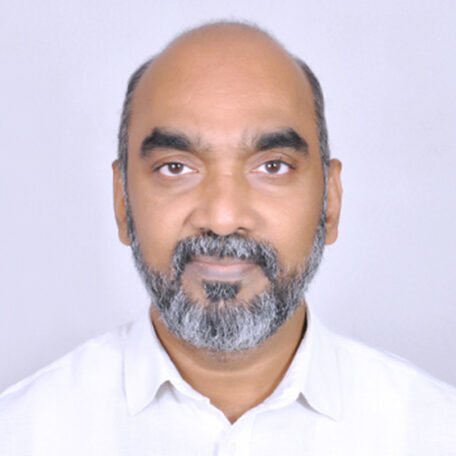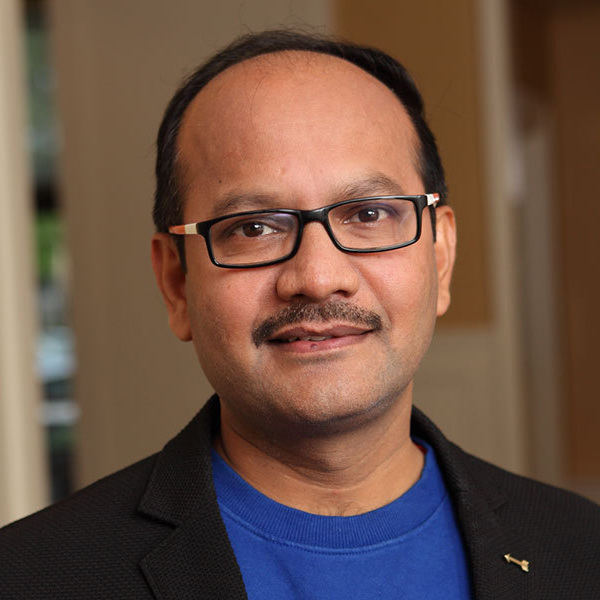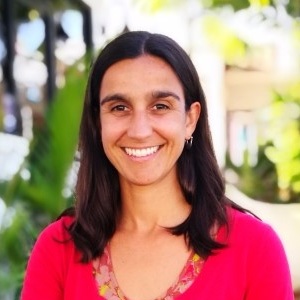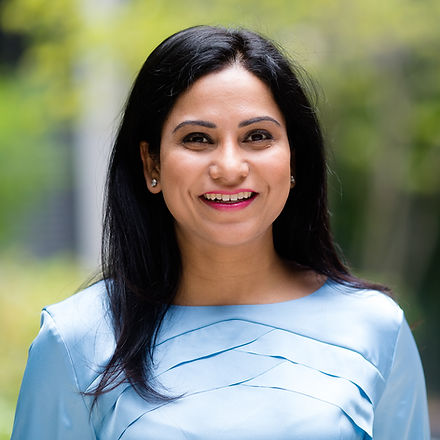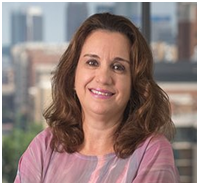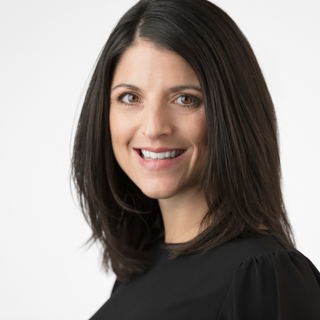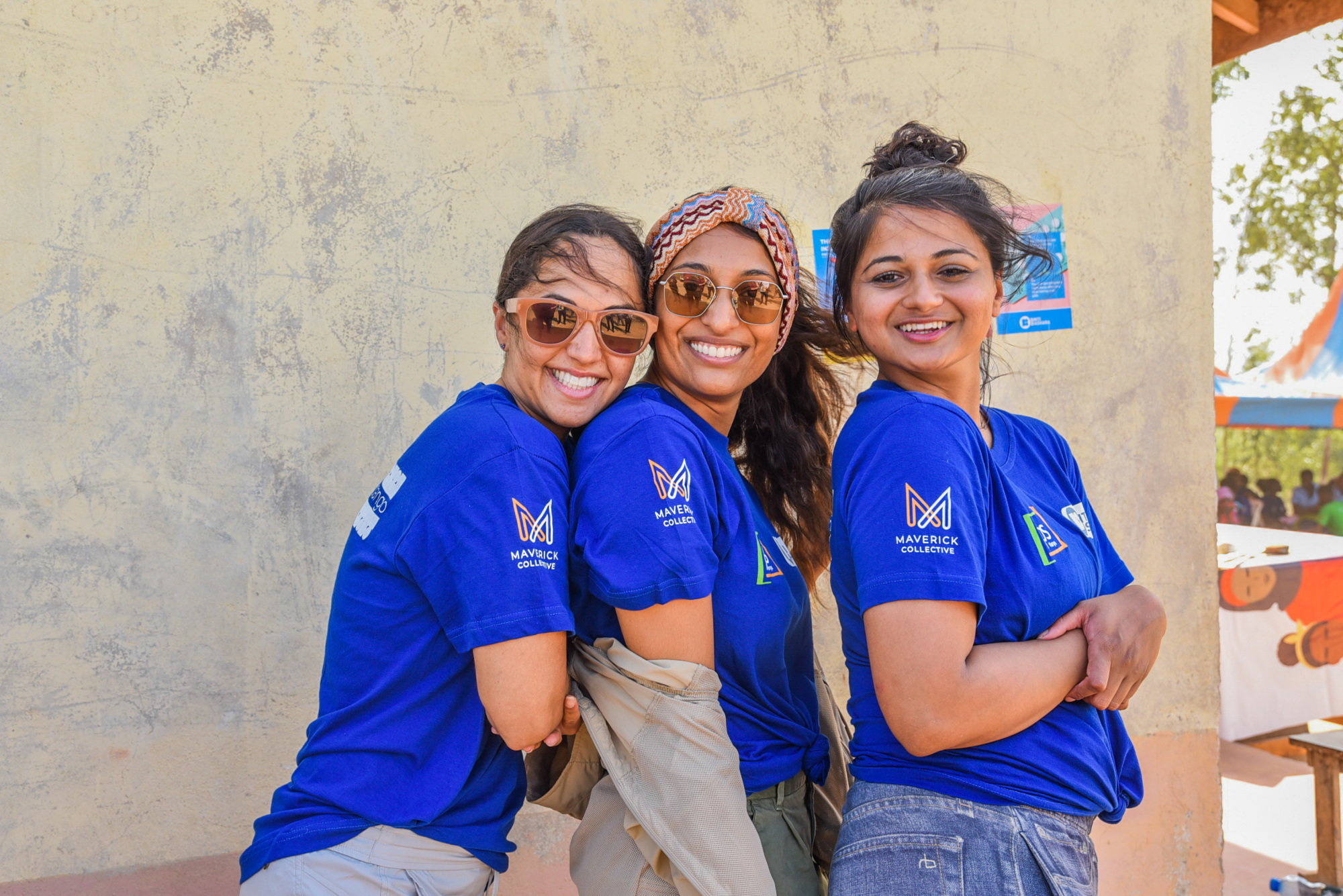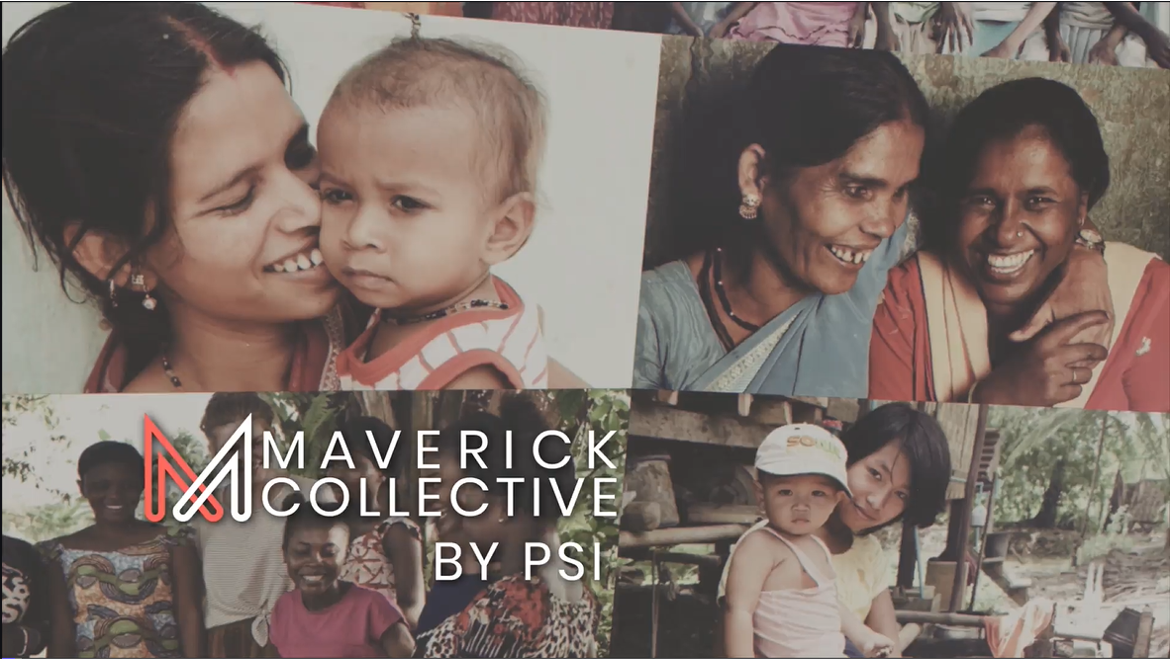

A is for Advocacy
USING ALL THE TOOLS IN THE TOOLBOX
From the Desk of
[...] the work (these projects) supported continues to drive change for Sara and her communities – unlocking her infinite potential by allowing her the live a fuller, healthier life.
That is the power of advocacy.
Dear Maverick Collective Community,
It is a pleasure to welcome you to this edition of ISSUE: A is for Advocacy: Using all the Tools in the Toolbox.
With sexual and reproductive rights come under increasing threat around the world, I could not think of a more timely or more appropriate topic to discuss.
Advocacy is an integral, yet often underrated or overlooked piece in the road to progress – especially in medicine and public health. It comes in many shapes and forms, connecting all of the pieces of a project, allowing them to build upon each other to enact change.
In this ISSUE, we explore how two project teams across geography and time, rolled up their sleeves and deployed all the advocacy tools at their disposal – and then some – to tackle one of the more insidious diseases affecting women that might not be top of mind: cervical cancer.
From changing private providers’ perceptions and increasing their comfort with additional approaches to screening in Uttar Pradesh, to creating lasting partnerships that ensured preventative care continued after the project closeout in Trinidad and Tobago, the work Kathy, Julia, and the projects’ teams supported continues to drive change for Sara and her communities – unlocking her infinite potential by allowing her the live a fuller, healthier life.
That is the power of advocacy.
So, meet and be inspired by the relentless work of these extraordinary teams with Maverick Beat; explore and discover different types of advocacy and their uses in Heart Homework; and then come join me and a powerhouse of guests to discuss how we can learn from one another and our experiences in Master Class!
I cannot wait to see you.
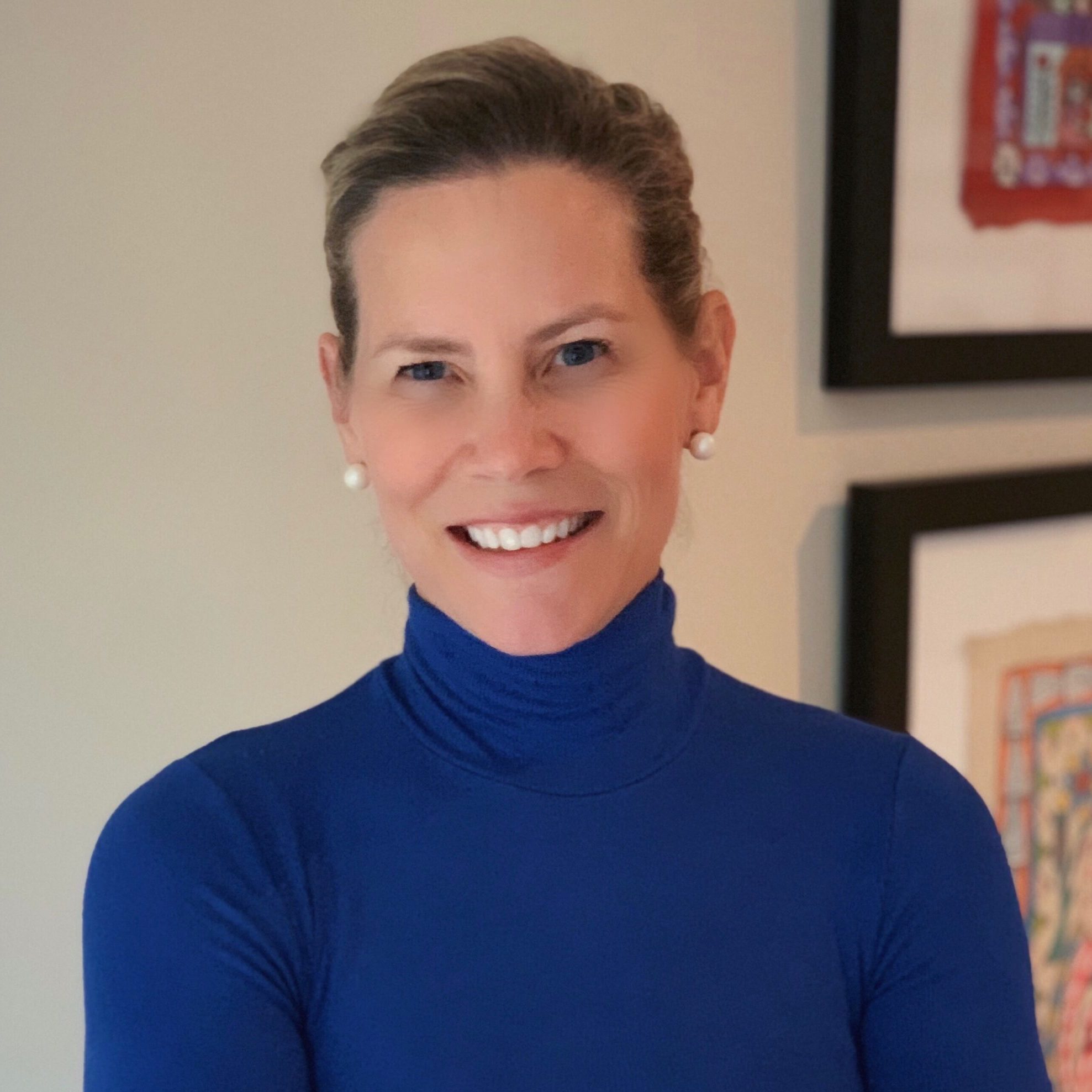
EPISODE 5 | A IS FOR ADVOCACY
Tune in to Episode 5 of Maverick Beat where, over the course of two segments, we spotlight two projects using all the advocacy tools at hand to prevent and treat cervical cancer Early Detection and Treatment of Cervical Cancer in India and Cervical Cancer Prevention in Trinidad and Tobago. You can explore more in the project pages including Kathy’s and Julia’s “journals,” stories from Sara, photos, and more.You can watch the full episode below or each part separately.

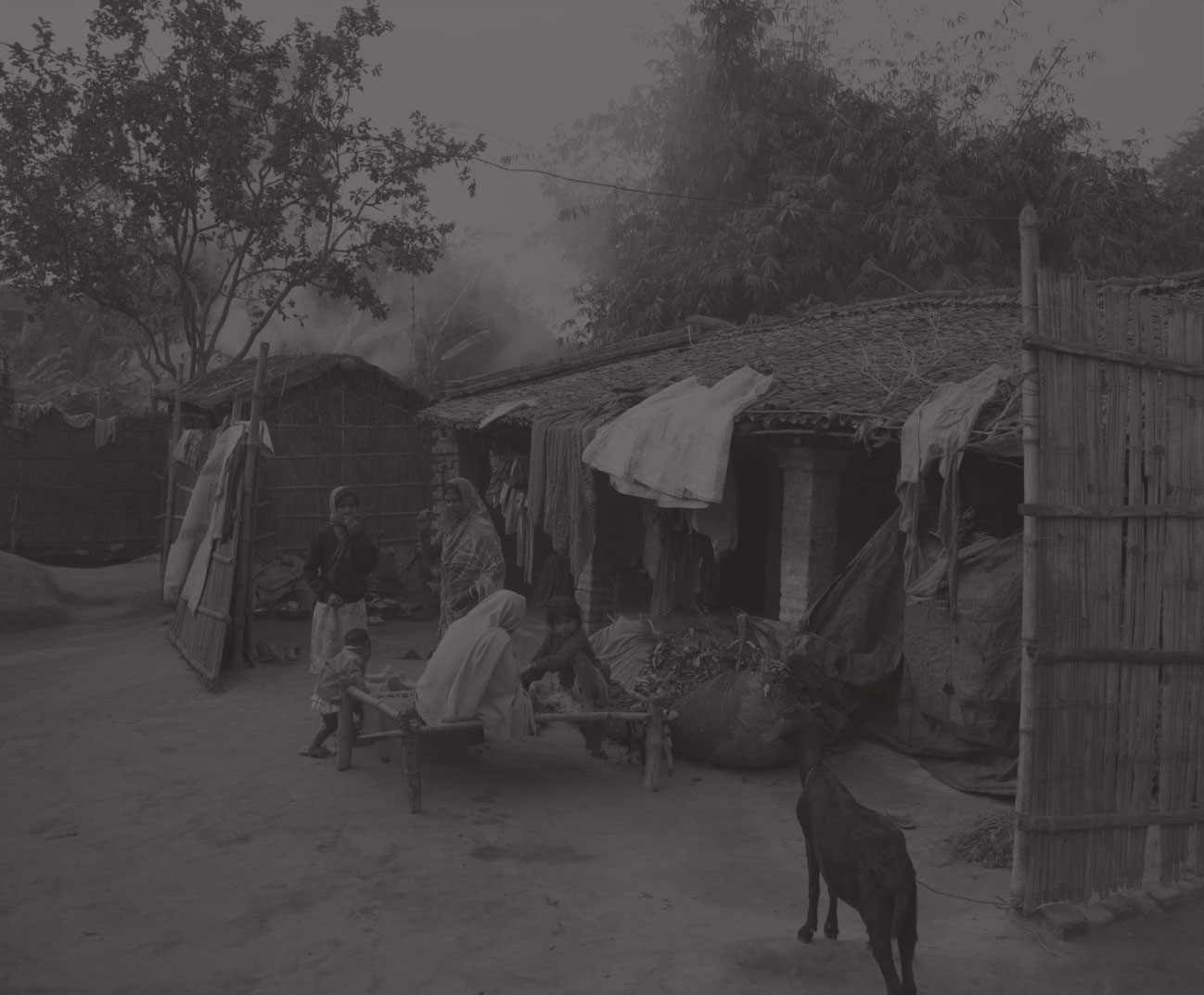
Preventing the Preventable

Maverick Beat | Ep5. Part 1: Early Detection and Treatment in India 20 mins
Cervical cancer afflicts a half million women across the world every year, but it’s most deadly in India. For many Indian women, seeing a doctor is the last resort and an unaffordable luxury. Special correspondent Fred de Sam Lazaro reports.
- 150 private sector providers trained in VIA
- +145k women aged 30-59 screened
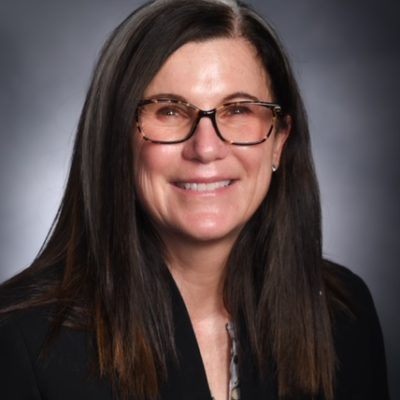
It's an issue around women's health, and it is an issue of justice because it's the women with least resources, it's the countries with the lowest income where most of the women are dying from this disease.Kathy Vizas, Maverick Collective Member
In early 2017, the Government of Uttar Pradesh requested that PSI India serve as technical advisors to integrate cervical cancer screening and pre-cancer treatment into women’s preventive health services offered at district hospitals. This model, known as ‘Sampoorna’ clinics, also offered routine screenings for other non-communicable diseases like blood pressure and glucose checks. These services have now been scaled up throughout 28 districts across the state of Uttar Pradesh.
By the end of the project cycle, close to 150,000 women aged 39-50 had been screened using the visual inspection with acetic acid method (VIA), and over 5,000 women (72% of cases detected) were treated with cryotherapy.
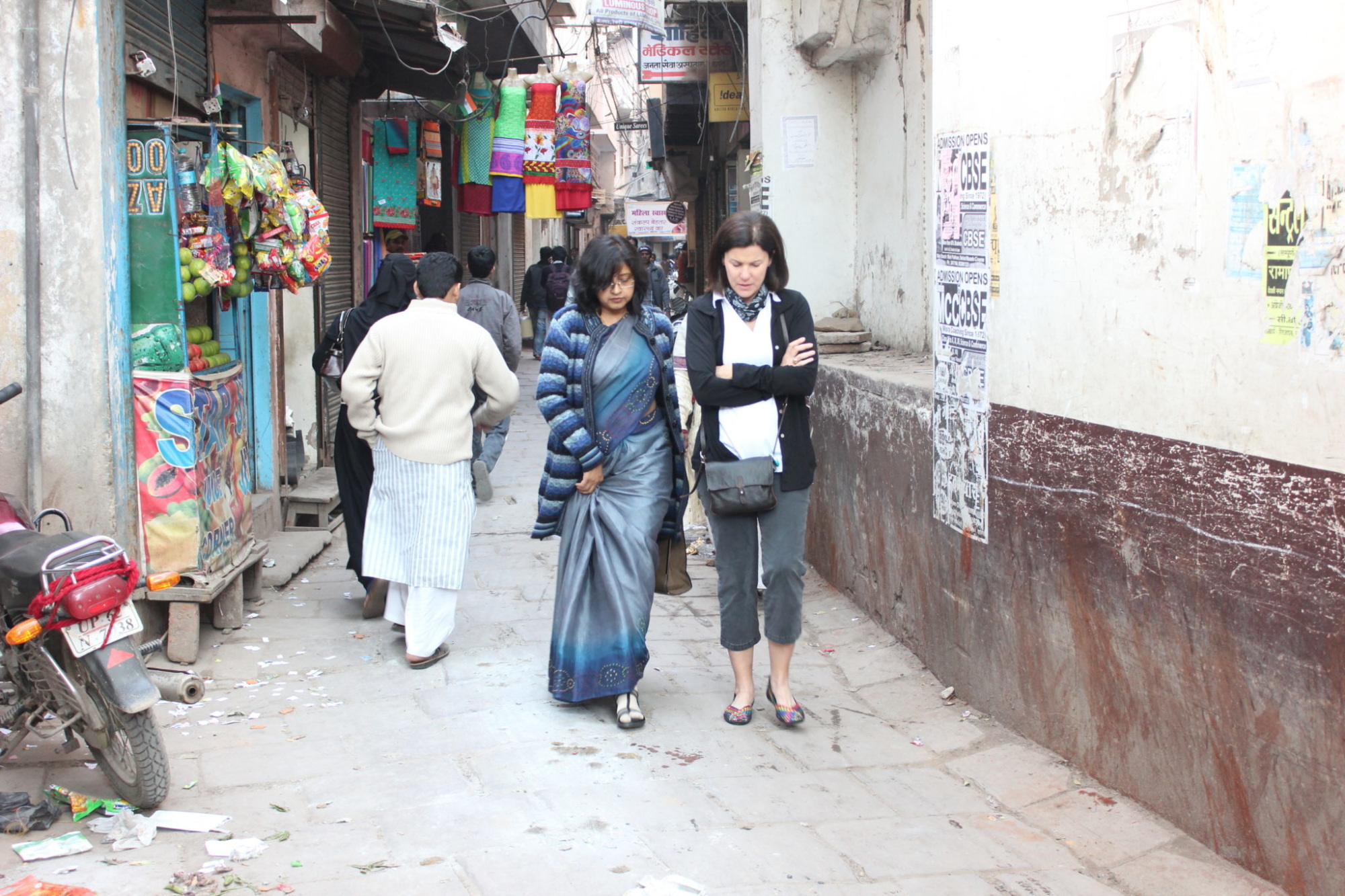
A walk to remember…
The photo is one of Dr. Ruchi and I walking in an alley. This was my second trip to India with the project. I had just arrived in Varanasi, Uttar Pradesh State, India. Dr. Ruchi and I had visited a Sampoorna clinic in a very poor Muslim neighborhood, and we were discussing the project when this picture was taken. This picture is memorable because Dr. Ruchi was such a pivotal part of the success of the project, and I love how it captures us sharing our thoughts on best ways to encourage women to participate.
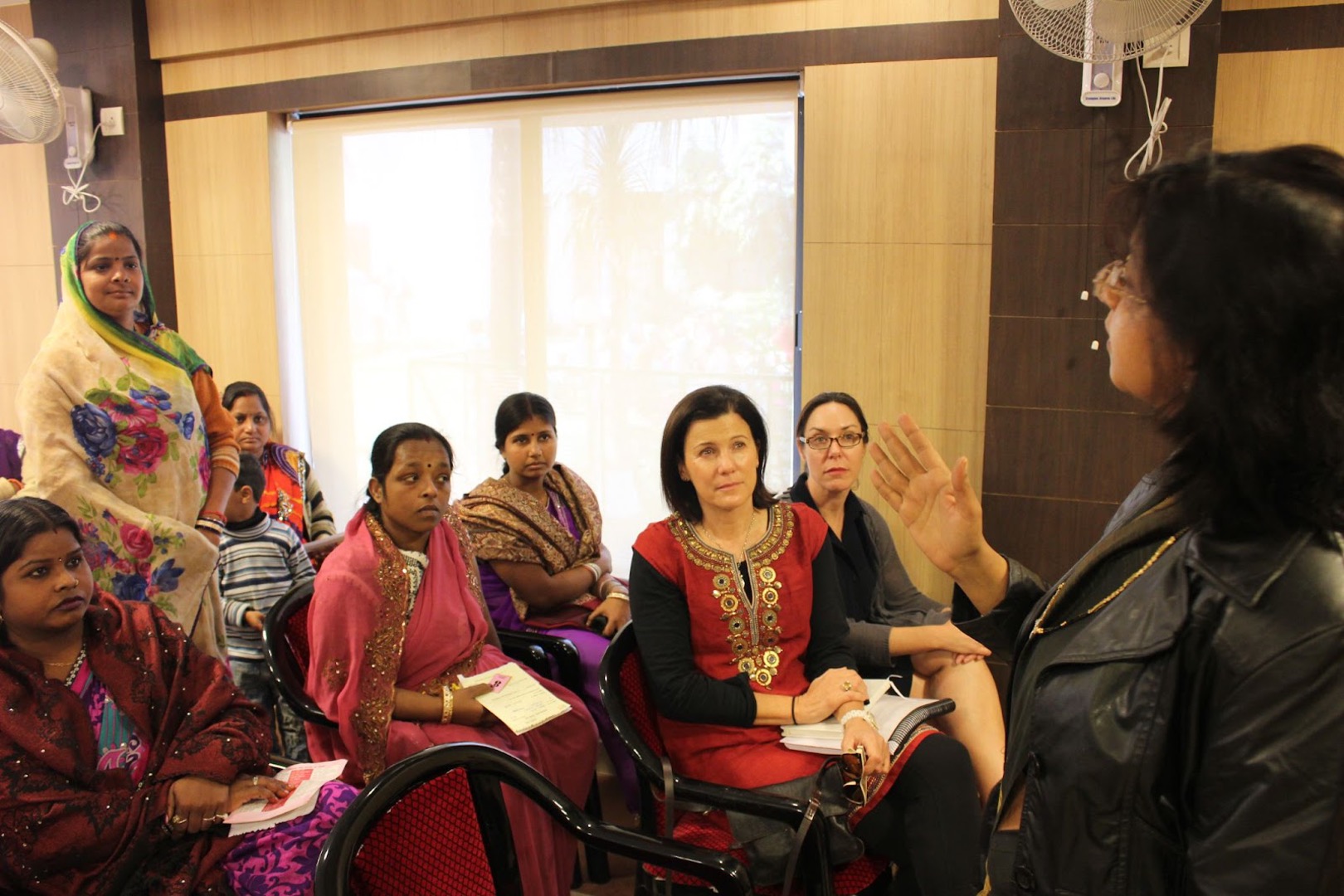
An unforgettable meeting…
There are a couple of memories of meeting with Indian women which come to mind for me. The first happened in a poor neighborhood in Delhi where we were taken to meet a group of women who were gathering to discuss the issue of cervical cancer. They all knew each other in some way – they were women from the same family, friends, neighbors, etc. They explained that even though cervical cancer is an issue that women do not discuss often, they were all ready to go for screening, and understood the importance of it. They were beautifully dressed, in their brightly colored saris. What stood out in my mind was their clear focus and determination to go for screening. I was also surprised by their awareness of the disease itself, which I often find lacking with my friends and colleagues in the United States.
Another memorable moment for me was attending a screening camp where women came for screening. There, we met two young female gynecologists who were volunteering their time that day to screen women. The event lasted for hours, and they diligently and patiently saw each patient. To me, this was a testament to the value these young doctors saw in this work.
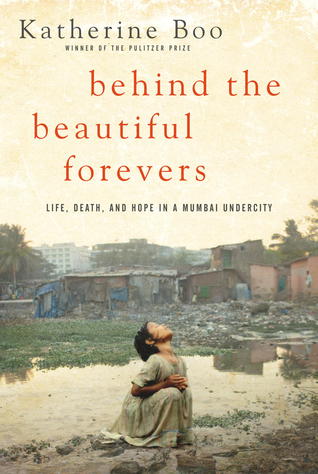
Reading to prepare…
First, I read A Fine Balance by Rohinton Mistry. This sweeping novel tells the story of very low-class tailors as they navigate pre-partition India until the presidency of Indira Ghandi. The author uses their stories to explain the cultural, political and economic changes the country went through during this period.
Behind the Beautiful Forevers by Katherine Boo. It is challenging to summarize the impact that this book has on a reader. It tells the stories of many families living in one of the poorest and largest slums in Mumbai and highlights the challenges facing modern day India.
Third, The Last Mughal by William Dalrymple. This historical account tells the story of the Sepoy Rebellion of 1857 and the transition from governance from the East India Company to the British Crown as well as the downfall of the Last Mughal, Zafar.
1/3
An Intergenerational Approach

Maverick Beat | Ep. 5, Part 2: Cervical Cancer Prevention in Trinidad and Tobago 16 mins
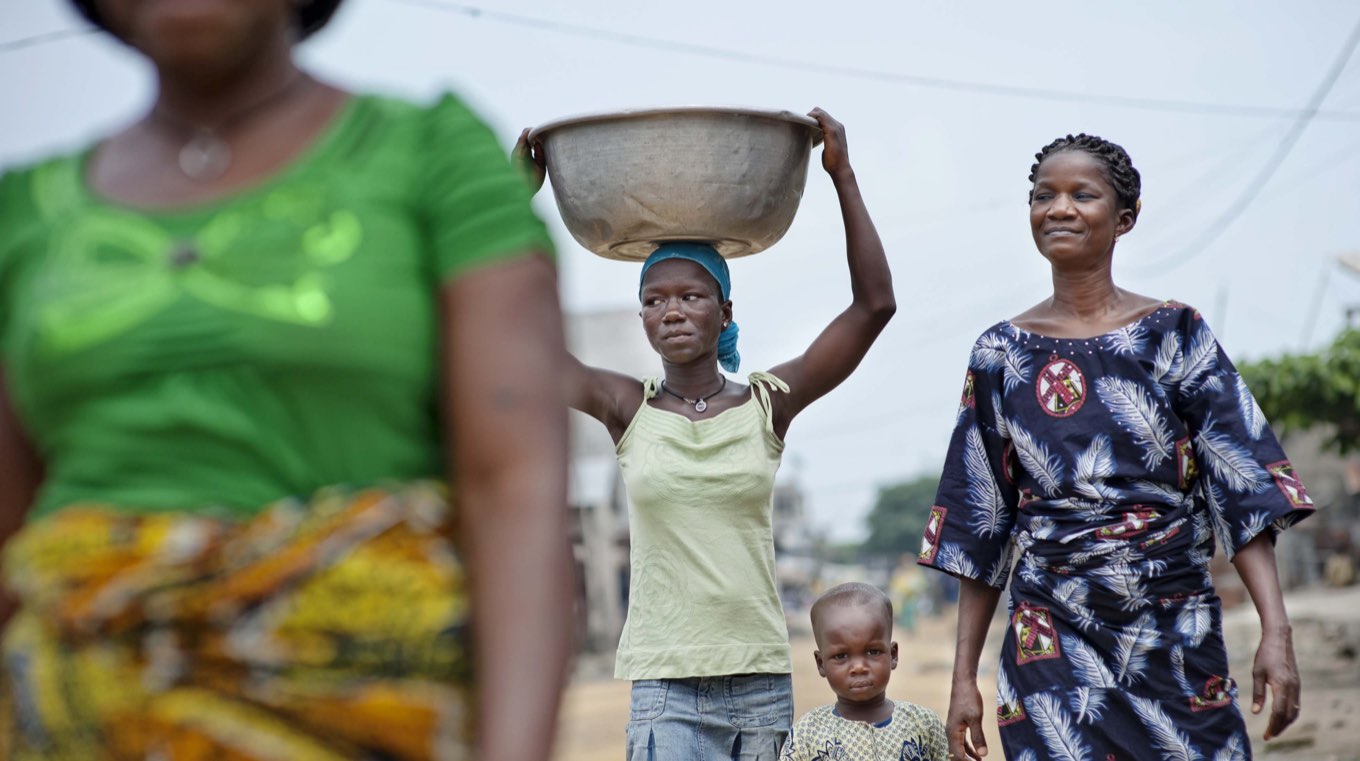
Malea had asked for the HPV vaccine at her local health center, but had heard they were out, and was calling to inquire where she could receive the vaccine.HOW A NATIONAL COMMUNICATIONS CAMPAIGN IS DRIVING DEMAND FOR THE HPV VACCINE
By PSI Caribbean
At the start of December, we received a call at the office from a woman named Malea who had seen our vaccination ad on TV. She had asked for the HPV vaccine at her local health center, but had heard they were out, and was calling to inquire where she could receive the vaccine.
PSI Caribbean took down her information, and upon contacting a few health centers, discovered they were in fact out of the vaccine. The team was able to reach out to the Expanded Program on Immunization (EPI) unit and obtain an update as to when new vaccines were expected to be at the health centers.
When the team followed up with Malea to let her know when her health center would receive their supply, she then proceeded to ask questions about HPV DNA testing. She was able receive information about this type of testing and learned where in the private health sector she could access the test. She also about screening more broadly. Malea left the call super motivated to get screened and where to receive screening – all due to that one TV ad.
- ^33% increased screenings for cervical cancer
- 92 providers trained in cervical cancer care and treatment

(The project's) impact on me, both as a funder but also as a human being, will continue to play out and reveal themselves to me in years to come.Julia, Maverick Collective Member
Overcoming the Barriers to HPV Vaccination and Screening for Cervical Cancer
Trinidad has one of the highest cancer mortality rates in the Caribbean. Over 549,000 women over the age of 15 are at risk of developing cervical cancer in Trinidad. It is the most frequent cancer among women aged 15-44 and the second leading cause of cancer death, after breast cancer. Despite being a highly preventable and treatable disease.
This project worked to prevent unnecessary deaths and illness resulting from cervical cancer by taking a life cycle approach: offering preventative care through the vaccine before instances of cancer become likely, while bolstering the capacity and quality of screening and treatment options for mature women.
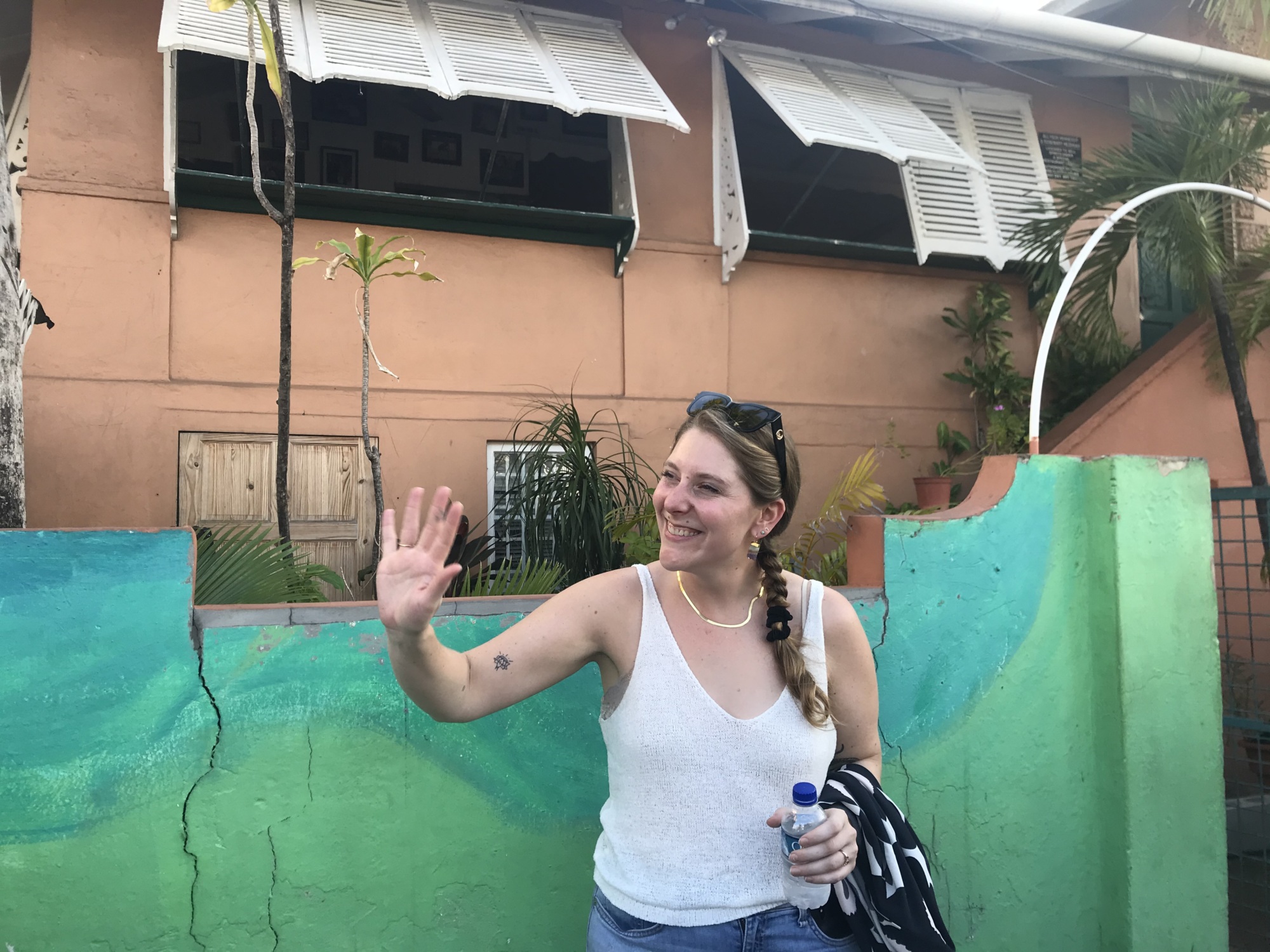
A fascinating moment…
On one trip down to Trinidad and Tobago, at the time I was taking oral hormonal birth control and I totally forgot my pack! I was able to go to a normal pharmacy and just get over the counter for $5 a pack of birth control. And I called my OB-GYN. I said, “Is this compatible? Is this similar dosage?” And she said, “Yes.” That would not have been possible at home.
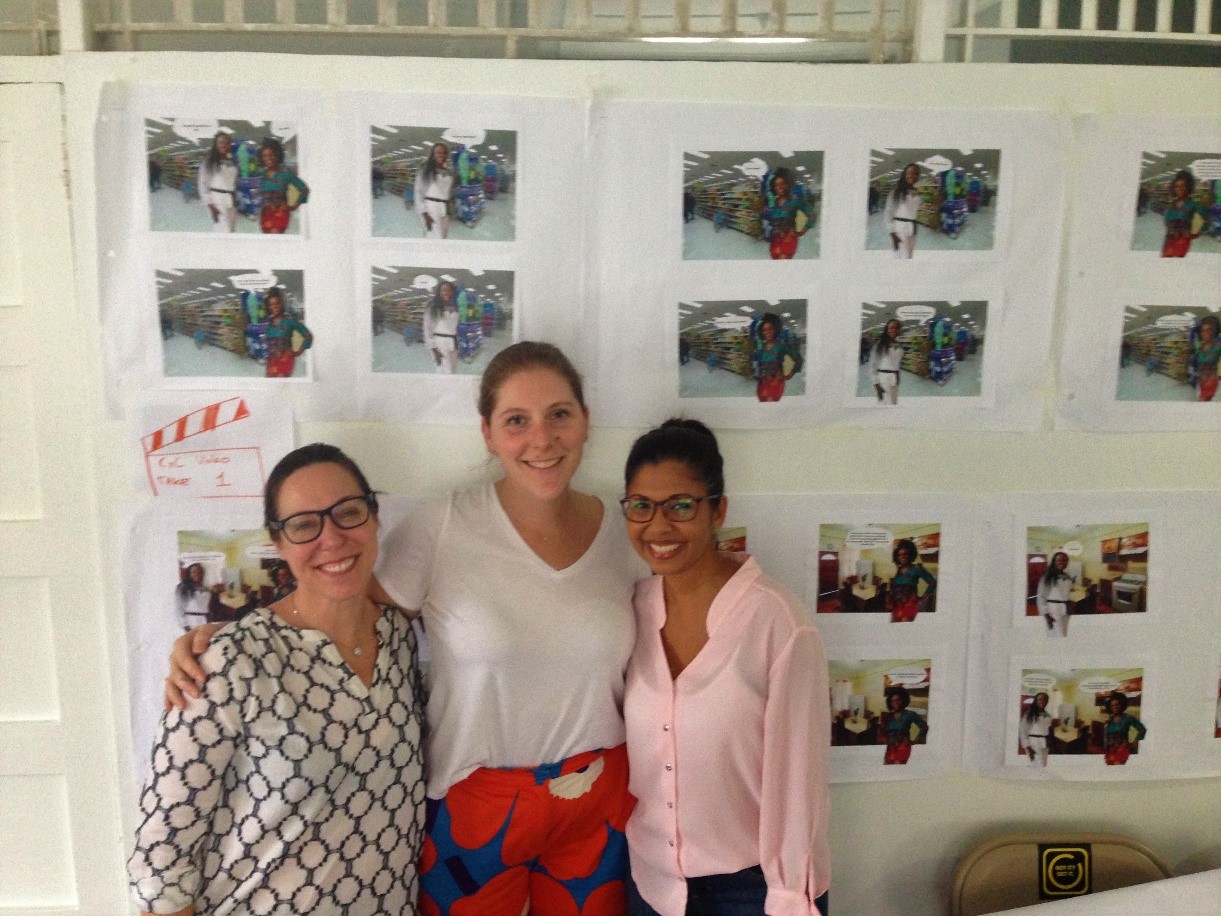
Not always glamorous…
There’s the hi-fi stuff with the lo-fi stuff. On one side, we had this global health NGO with over 50 years of experience called PSI behind us, and we have experts on experts and such a deep bench of resources and partnership. And on the other, there are moments when we’re cutting out pictures from magazines to make collages to talk about what we think the storyline should be like. And that’s very humanizing.
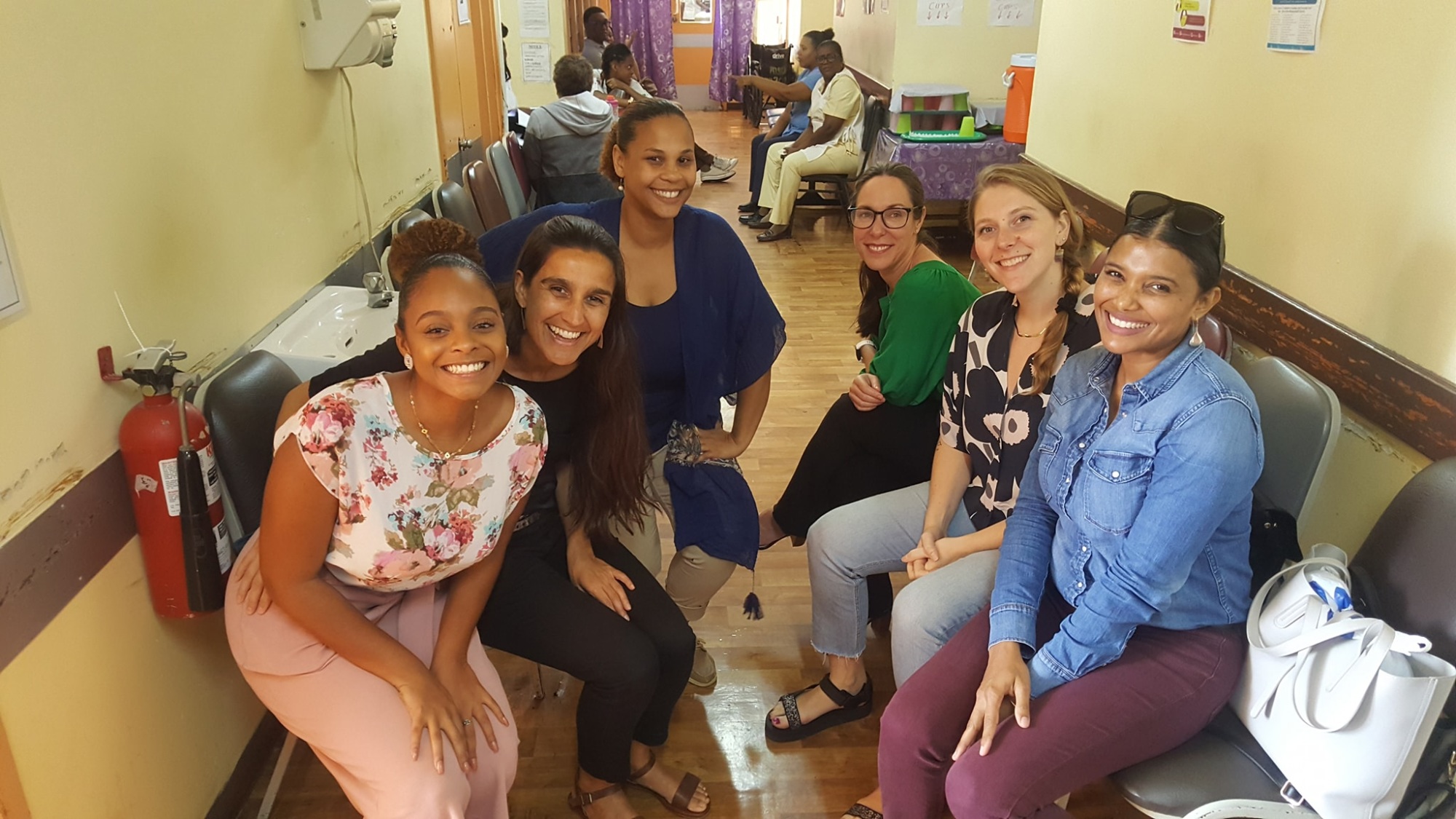
A force for good…
Wendy and Paige have really made it their mission to bring awareness about cervical cancer to Trinidad and to the region and help prevent it. To see the advocacy efforts of Wendy and Paige and joining forces with ASDF, it was pretty serendipitous. And for me, very, very meaningful.
1/3
A is for Advocacy
From influencing policy to intimate conversations with friends, advocacy is an important tool to change opinions and create an enabling environment for change.Join us to examine how experts are using all the tools in their toolbox to advocate for necessary change for increased prevention and treatment of cervical cancer at every level of influence, and how you can do the same for the issues that are near and dear to you.
In this Master Class you will learn:
- The difference between “big A” and “little a” advocacy, and their roles promoting change;
- The formal and informal ways in which women advocate for the issues they are passionate about;
- The importance of advocacy at all levels of influence when tackling challenging global health issues like cervical cancer.
Keynote Speaker
Speakers
Moderator
Heart Homework
DIG DEEP AND LEARN MORE -- IN YOUR OWN TIME AND AT YOUR OWN PACE.
-
WATCH: 5 Steps to Becoming an Advocacte
Are we obliged to advocate?
As a lifelong world wanderer, Joseph Campbell has a particular perspective on advocacy and self-determination. -
LEARN: Avocate Toolkit - Just Add ... YOU!
Brought to you by the Community Toolbox, this toolkit guides you through key questions to help you get started planning an advocacy effort and respond to opposition.
-
DISCOVER: Connect the Dots
LaTricea Adams understands that no issue exists in a silo. To be good advocates, we need to understand our issue and how it both impacts and is impacted by its environment. In her case, it meant expanding her advocacy to confront redlining and environmental justice.
